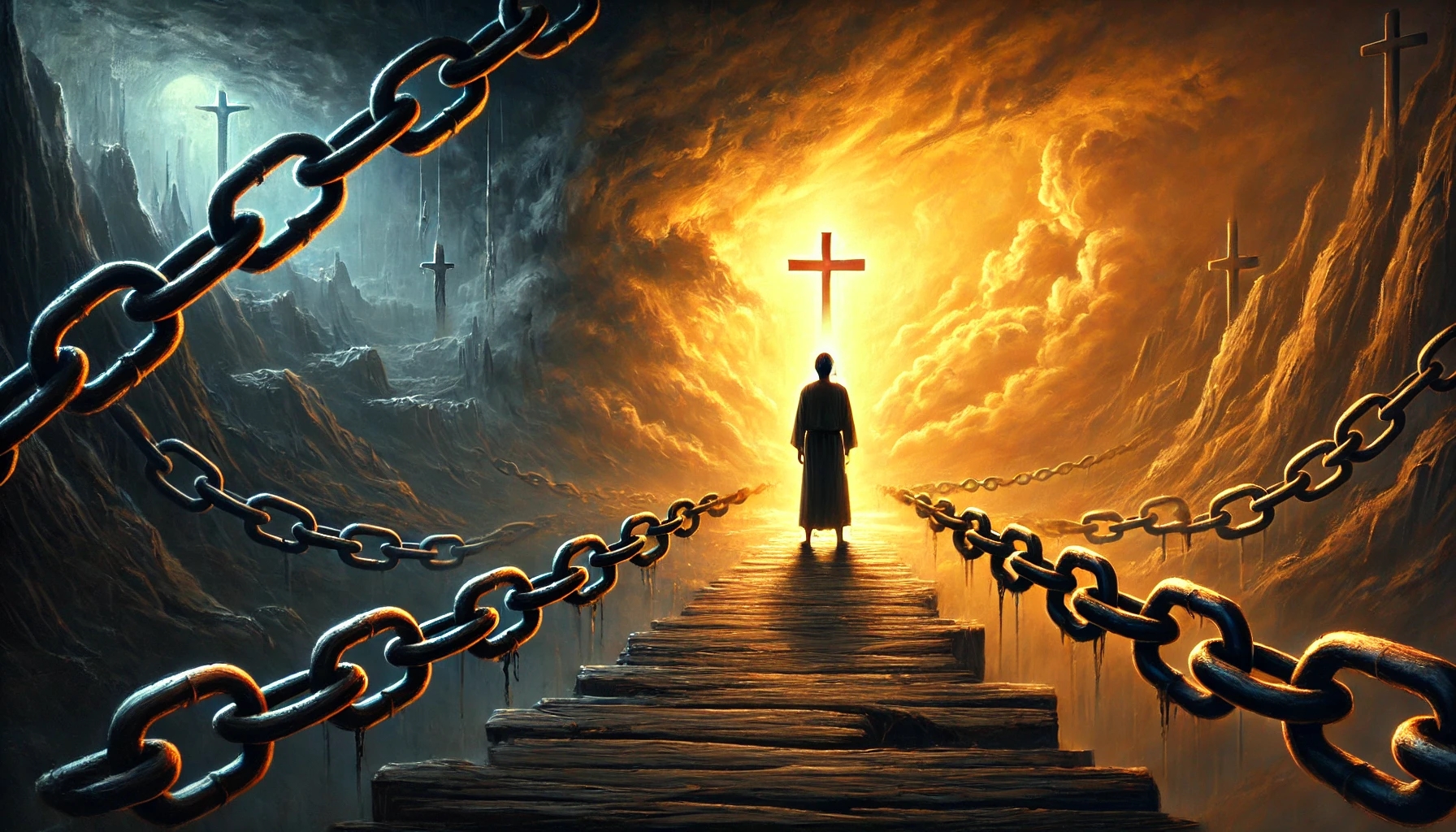February 9, 2024
DAILY BIBLE READING – 1 Timothy Chapter 4
1 Now the Spirit speaketh expressly, that in the latter times some shall depart from the faith, giving heed to seducing spirits, and doctrines of devils;
2 Speaking lies in hypocrisy; having their conscience seared with a hot iron;
3 Forbidding to marry, and commanding to abstain from meats, which God hath created to be received with thanksgiving of them which believe and know the truth.
4 For every creature of God is good, and nothing to be refused, if it be received with thanksgiving:
5 For it is sanctified by the word of God and prayer.
6 If thou put the brethren in remembrance of these things, thou shalt be a good minister of Jesus Christ, nourished up in the words of faith and of good doctrine, whereunto thou hast attained.
7 But refuse profane and old wives’ fables, and exercise thyself rather unto godliness.
8 For bodily exercise profiteth little: but godliness is profitable unto all things, having promise of the life that now is, and of that which is to come.
9 This is a faithful saying and worthy of all acceptation.
10 For therefore we both labour and suffer reproach, because we trust in the living God, who is the Saviour of all men, specially of those that believe.
11 These things command and teach.
12 Let no man despise thy youth; but be thou an example of the believers, in word, in conversation, in charity, in spirit, in faith, in purity.
13 Till I come, give attendance to reading, to exhortation, to doctrine.
14 Neglect not the gift that is in thee, which was given thee by prophecy, with the laying on of the hands of the presbytery.
15 Meditate upon these things; give thyself wholly to them; that thy profiting may appear to all.
16 Take heed unto thyself, and unto the doctrine; continue in them: for in doing this thou shalt both save thyself, and them that hear thee.
King James Version. Public Domain
Commentary
Introduction
In 1 Timothy 4, Paul strongly warns against false teachings and spiritual deception that will arise in the “last times.” He emphasizes that some people will fall away from the true faith and turn to seductive spirits. In doing so, he criticizes an exaggerated form of abstinence imposed by humans rather than relying on God’s grace and truth. Paul stresses that true godliness is not found in external prohibitions, but in steadfast faith in God and a life that is guided by His word.
In this chapter, he gives Timothy clear instructions for his ministry: he is to steer clear of useless and false teachings, practice godliness, and be an example for the believers. Particularly emphasized is the need for sound doctrine and a vigilant way of life that contributes not only to one’s own salvation but also to the salvation of others.
Commentary
Warning Against False Teachings (Verses 1-5):
Paul issues a prophetic warning: in the last days, some will fall away from the faith and turn to demonic doctrines. These false teachers will establish external prohibitions that contradict God’s will—for example, banning marriage or certain foods. Paul makes it clear that everything God created is good and should be received with thanksgiving.
True Service for God (Verses 6-11):
Timothy is admonished to pass on the correct doctrine to the believers. A healthy faith is not based on speculation or myths, but on God’s word. While physical exercise has some value, Paul emphasizes that spiritual exercise—namely, godliness—is far more valuable, as it holds promises for both this life and the life to come.
A Role Model in Faith (Verses 12-16):
Although still young, Timothy is to be a role model for the believers—in his speech, conduct, love, faith, and purity. He is encouraged to focus on reading, exhorting, and teaching, and not to neglect the gift that God has given him. Paul urges him to persist in these areas, for by doing so he will not only lead himself to salvation but also others.
Summary
1 Timothy 4 provides a serious warning against false teachings that will emerge in the last days. Paul shows that true godliness does not stem from human-imposed prohibitions, but from a life rooted in God’s word and truth. He calls on Timothy to avoid fruitless discussions and concentrate on what is essential: a life marked by faith, love, and purity.
The apostle makes it clear that a faithful servant of Christ can strengthen not only himself but also others through his teaching and example. This message remains as relevant today as it was then: true discipleship in Christ means holding fast to sound doctrine, living an exemplary life, and safeguarding God’s truth in a world full of deceptive teachings.
![]()

WEEKLY SPIRIT OF PROPHECY READING – Ellen White | Steps to Christ
Chapter 4—Confession
Read online here
Commentary
Introduction
The confession of sins is a fundamental component of the Christian faith. Without genuine repentance and humility, man remains separated from God. Proverbs 28:13 makes it clear that only those who confess their transgressions and forsake them will experience mercy. But what does true confession of sin really mean?
In this chapter, it is explained that genuine repentance is not achieved through external rituals or acts of penance, but through a sincere heart that humbles itself before God. It is not enough to confess our sins superficially or to make excuses—we must take responsibility for our actions. The Holy Scriptures show us that God is ready to forgive when our confession is accompanied by honesty and a commitment to change.
Commentary
The Conditions for Forgiveness (Proverbs 28:13):
God sets clear conditions for the forgiveness of sins: a sincere confession and a real turning away from sin. There are no shortcuts through human works or rituals—forgiveness comes solely from God’s grace when we are willing to submit to Him completely.
Confession before God and Men (James 5:16):
While sins must always be confessed before God, there are also instances where we should apologize to others. Whoever has wronged another should offer a direct apology before asking God for forgiveness. This demonstrates that confession is not only a spiritual matter but also has an interpersonal dimension.
The Problem of False Repentance:
Often, people try to justify or downplay their guilt. Even Adam and Eve shifted their blame onto others (Genesis 3:12-13). True repentance, however, requires that we openly and honestly acknowledge our sins without making excuses or engaging in self-justification.
Biblical Examples of Genuine Confession:
Paul serves as an example of sincere repentance. He did not hide his past misdeeds; instead, he openly confessed how he had persecuted Christians (Acts 26:10-11). This shows that true confession of sin is not just lip service, but a profound awareness of one’s own wrongdoing and a desire for transformation.
The Power of Forgiveness (1 John 1:9):
God is faithful and just. When we confess our sins, He forgives us and cleanses us from all unrighteousness. This assures us that no one has fallen so far that they cannot be restored through God’s grace.
Summary
The confession of sins is the key to forgiveness and the restoration of our relationship with God. Those who hide or justify their guilt remain in spiritual darkness. But those who come to God with a sincere heart will receive mercy.
This chapter shows us that true repentance is not about empty words or superficial confessions, but about a deep awareness of our own guilt and a desire for a transformed life. It encourages us not only to confess our sins to God but—if necessary—to also acknowledge them to our fellow human beings.
The Bible gives us a firm promise: God will forgive us when we come to Him honestly. This is the great hope and comfort for all who seek genuine reconciliation with God.
* * * * *
Five Essential Principles for a Sincere Confession and the Acceptance of Divine Forgiveness:
1.Forgiveness Through Sincere Confession
Whoever sincerely confesses their sins and forsakes them receives God’s mercy (Proverbs 28:13).
2.Confession Before God and Men
Sins should be confessed before God, while interpersonal faults must also be acknowledged to those affected (James 5:16).
3.No Room for Excuses
True repentance means taking responsibility for one’s guilt without making excuses or shifting blame onto others (Genesis 3:12-13).
4.The Example of the Israelites and Paul
The Israelites acknowledged their sin and confessed it publicly (1 Samuel 12:19). Paul did not hide his past but spoke openly about his transgressions (Acts 26:10-11).
5.God’s Promise of Forgiveness
Whoever comes with a sincere heart will receive forgiveness and cleansing (1 John 1:9). God is faithful and just, and He forgives all who honestly confess their guilt.
Source: https://fulfilleddesire.net/09-02-2025-1-timothy-chapter-4-believe-his-prophets/





 Application: As Christians, we are called to harmonize love and justice – by acting mercifully while also standing up for truth and righteousness.
Application: As Christians, we are called to harmonize love and justice – by acting mercifully while also standing up for truth and righteousness.




 Everyday Application: Love is not just meant for “easy” situations. It is especially evident when we deal with difficult people. True discipleship means being shaped by God’s love and doing good even to those who are not kind to us.
Everyday Application: Love is not just meant for “easy” situations. It is especially evident when we deal with difficult people. True discipleship means being shaped by God’s love and doing good even to those who are not kind to us.


